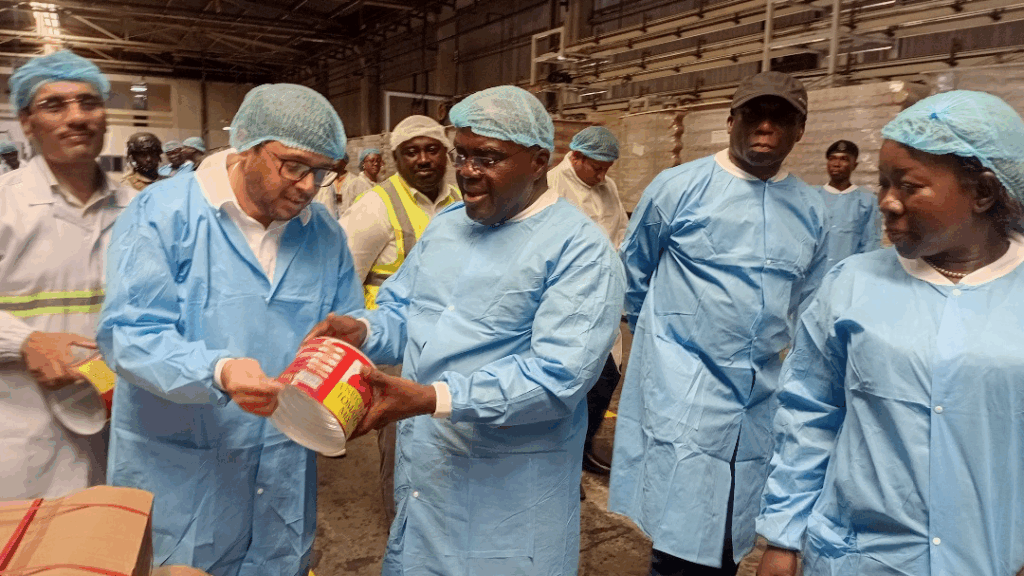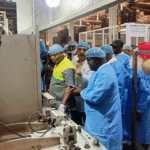
Chief of Staff, Julius Debrah, has described President John Mahama’s 24-Hour Economy business model as the catalyst that will set Ghana on the path to true industrialisation.
He noted that although previous governments had made attempts to industrialise the country, those efforts lacked clear direction, making the current administration’s approach the most suitable.
His remarks came during a visit to Nutrifoods Ghana Ltd, located at Community 20 and the Tema Industrial Area, two of Ghana’s largest snack and culinary food manufacturing facilities.

“The company exemplifies President Mahama’s 24-hour economy initiative. We were looking for a business model that is already putting into practice some of the ideals of the 24-hour economy.
“We were impressed to find that Nutrifoods strongly believes Ghana must become the manufacturing hub of West Africa,” he said.
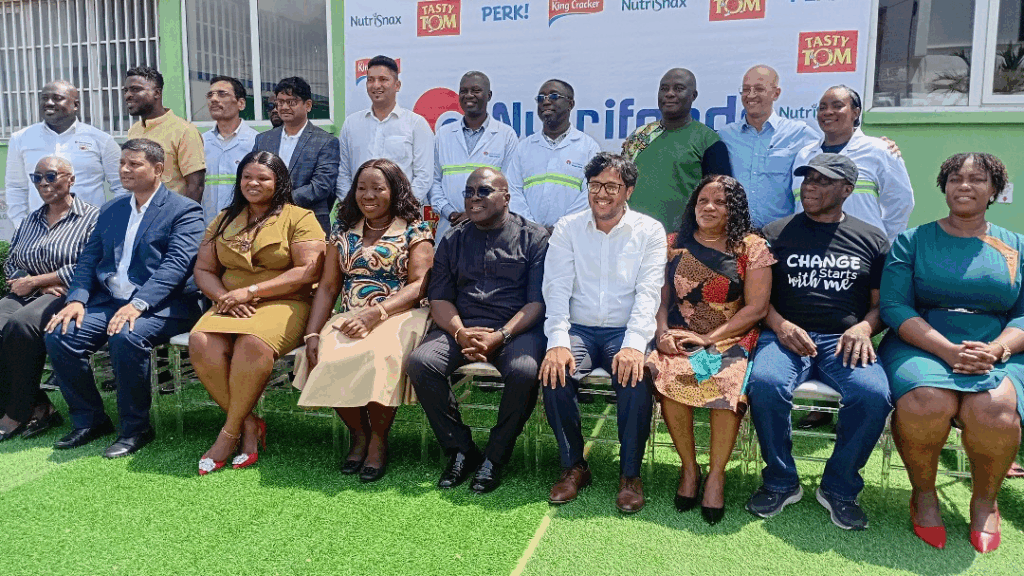
He revealed that the company exports to several West African countries, including Guinea-Bissau.
When asked whether the government plans to partner with private companies with the potential to employ more people, he answered in the affirmative.
“They embraced the 24-hour economy long ago, running triple shifts with mostly local materials proving that Ghana can produce and export confidently across West Africa. With investors aligning with the president’s vision, we’ve taken a vital first step”

He noted that government is considering proposals from Nutrifoods to support business growth, adding, “We must make investors comfortable, or capital will flee. The 24-hour Accelerated Export drive introduces incentives to boost manufacturing, retain capital, and position Ghana as a leading export hub.”
He also commended the company’s strong commitment to safety and hygiene.
“In terms of safety and cleanliness, the factory has clearly defined work zones to prevent accidents, strict protective clothing protocols, and even metal detectors to ensure products remain contamination-free.”
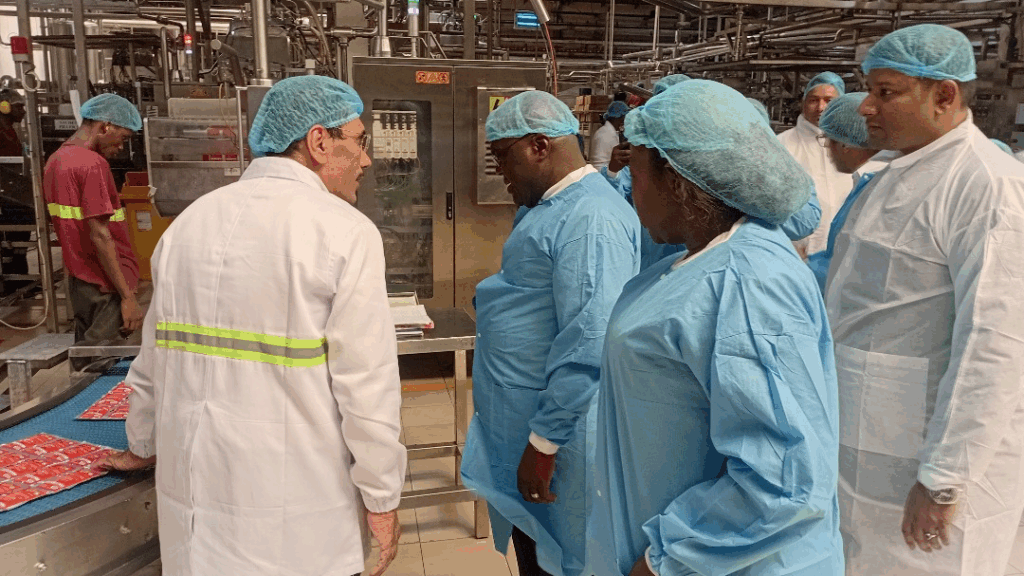
One of the highlights of the visit was the commissioning of a $500,000 upgraded can-making line at the culinary plant in the Tema Industrial Area.
“The upgraded line reinforces Nutri Foods’ safety and quality standards while supporting 24-hour production and job growth under the government’s 24-hour economy initiative.”
Julius Debrah highlighted that Nutri Foods moulds cans on-site, showing attention to detail, and stressed the need for better local sourcing of key materials like tomato paste.
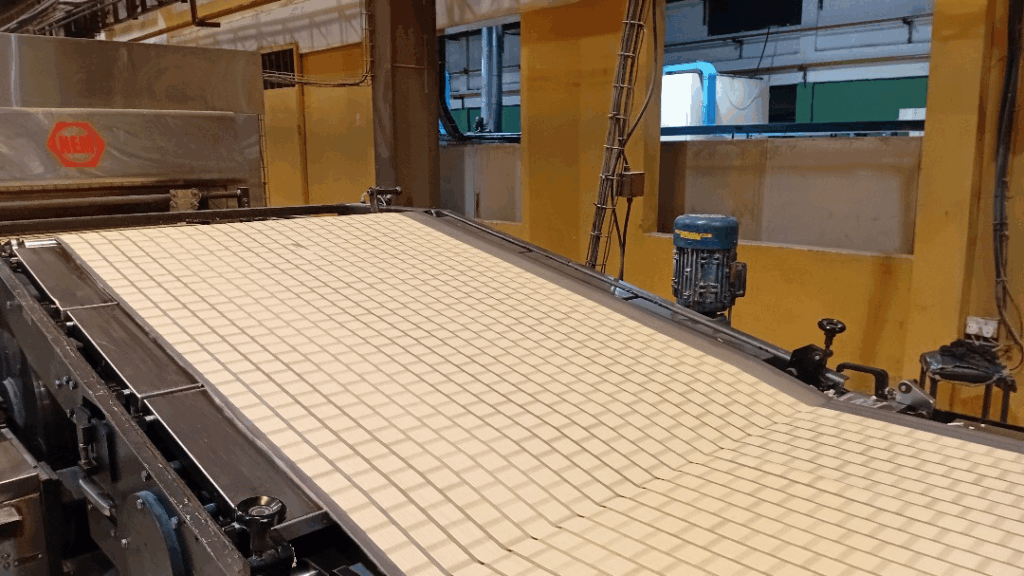
He said adding value to raw products and ensuring a reliable local supply are crucial for agro-processing, and with the president’s vision, Ghana’s manufacturing sector can grow with broader collaboration.
“It’s not about NDC or NPP. Imagine we have hundreds of such factories in Ghana. The people who will work there are not going to ask whether you’re NPP or NDC. When a policy makes sense, we must all support it. With the backing of citizens, Ghana can develop much faster,” he urged.
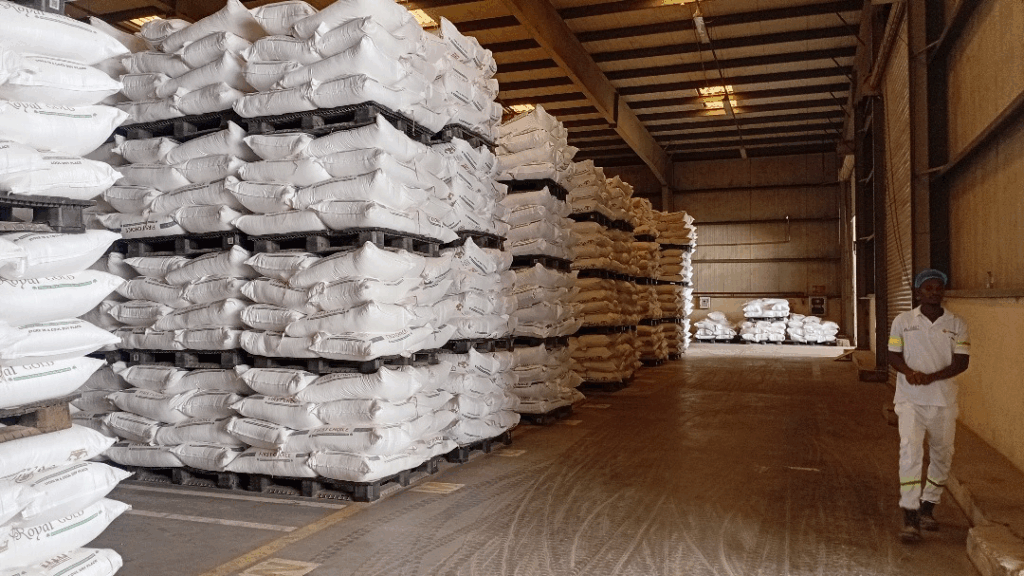
Julius Debrah described the visit as “informative, educative, and productive.”
Managing Director of Nutri Foods, Jay Anjaria, said the upgraded can-making line reinforces the company’s support for the government’s Invest in Ghana initiative, which promotes local industrial growth.
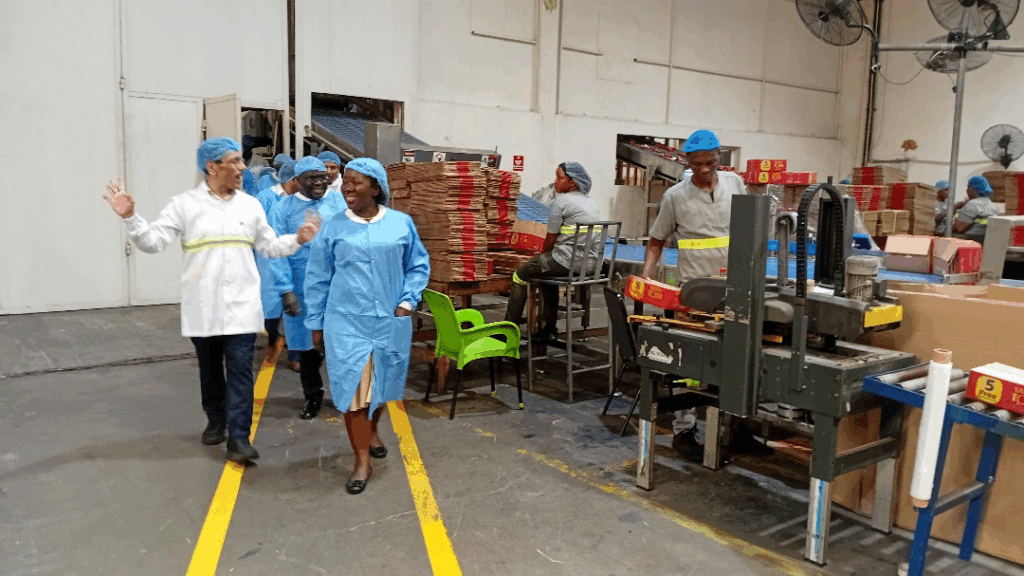
He reaffirmed the company’s adherence to international food safety and quality standards.
“At Nutrifoods, we uphold world-class standards to produce high-quality, home-grown brands for Ghana and Africa,” Anjaria said.
He explained that equipment, including the new can-making and Japanese sachet lines, is upgraded every three years to ensure precision, efficiency, and safety.
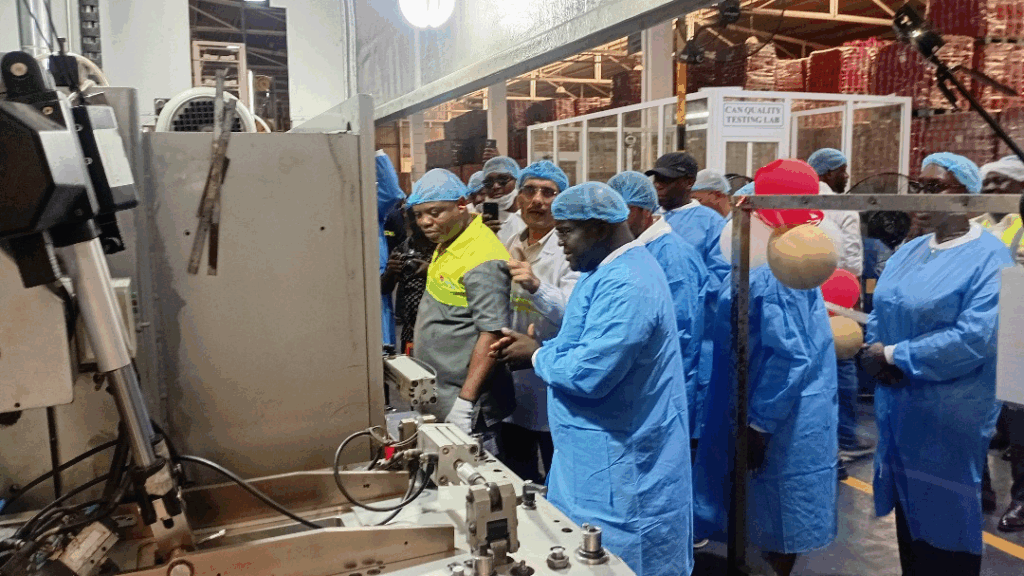
Addressing reports linking the upgrade to recent Food and Drugs Authority (FDA) concerns, he clarified that the new line had been planned well in advance.
“The line arrived in Ghana in February. We have worked closely with the FDA through an 18-point compliance programme. This upgrade was part of our regular equipment renewal cycle.”
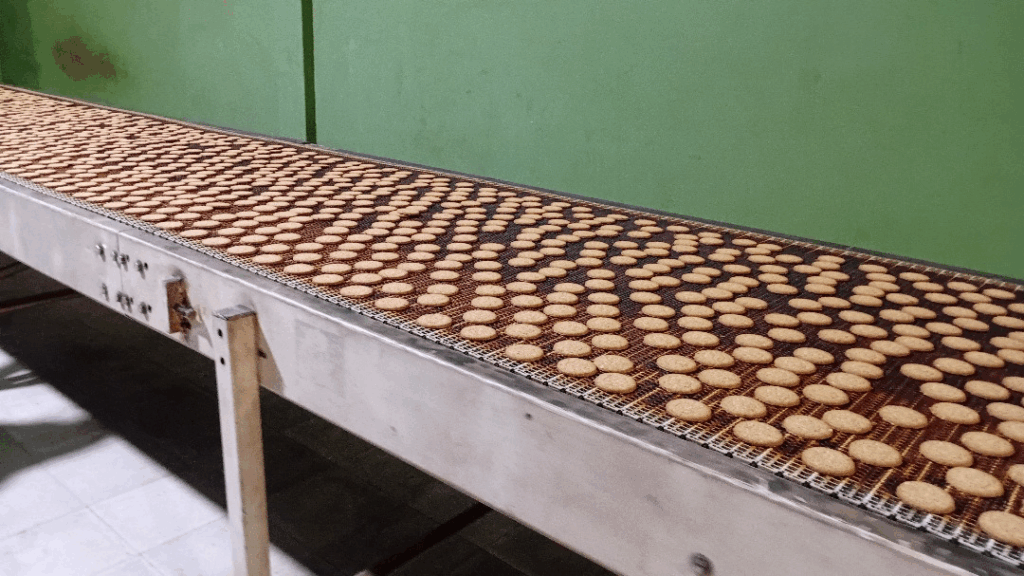
He confirmed both pouches and cans will continue to be used with no price increases, as costs are absorbed within a 15–20-year CAPEX programme.
Touching on operations, he said, “Nutrifoods already runs a 24-hour operation across its plants, employing about 2,000 workers, including 300 permanent staff.”
Jay Anjaria lauded government-industry engagements, saying they reassure businesses that their concerns are heard, while affirming Nutrifoods’ commitment to the ‘Make in Ghana’ 24-hour economy initiative.
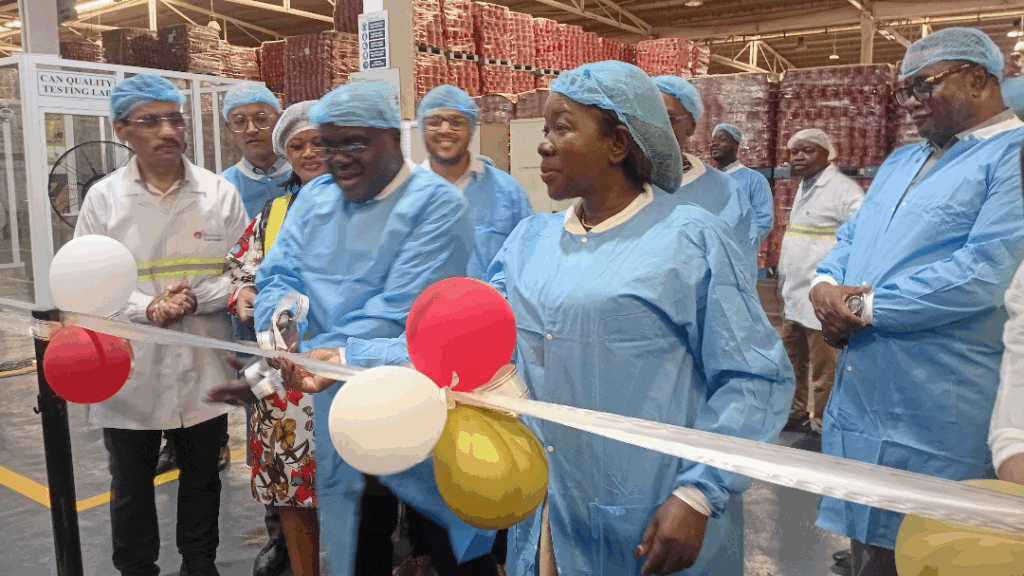
“Better infrastructure will cut costs and boost transport efficiency, and help Ghana become a West African manufacturing hub. Nutrifoods exports to 11 countries and values government-industry collaboration,” he indicated.
Chief of Staff, Julius Debrah, was accompanied on the tour by the Minister of Trade, Agribusiness and Industry, Elizabeth Ofosu-Adjare, and other senior government officials.
